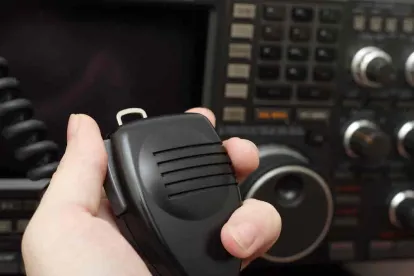Over the past few years, Congress, the Federal Communications Commission (FCC), and the Executive Branch have taken several actions to protect the security of the U.S. communications network and equipment supply chains. Those actions have focused on communications equipment and services provided by Chinese companies. For example, Congress has banned federal agencies from procuring communications equipment and services produced by certain Chinese companies.
The FCC has also played a role by prohibiting the use of federal subsidies for the purchase of equipment and services on the Covered List (a list maintained by the FCC that identifies communications equipment and services that pose an unacceptable risk to national security the security of U.S. persons) and by managing a "rip and replace" program to assist small network operators in removing banned equipment from their networks. The FCC recently revised its rules to prohibit the grant of equipment authorizations for radio frequency devices manufactured by companies on the Covered List and is considering rules to revoke previously granted equipment authorizations.
Congressional and Executive Branch Actions Prohibiting Equipment and Services from Chinese Companies
Federal actions to address national security risks to communications infrastructure have included the following:
-
National Defense Authorization Act (NDAA) for Fiscal Year 2018 (December 2017) – Banned the Department of Defense from purchasing and using certain telecommunications equipment and services provided by Huawei Technologies Company (Huawei) and ZTE Corporation (ZTE).
-
NDAA for Fiscal Year 2019 (August 2018) – Prohibited Executive Branch agencies from using federal funds to procure certain telecommunications equipment or services (including video surveillance equipment and services) and from entering into any contracts with an entity that uses such equipment or services. Expanded covered companies to include Hytera Communications Corporation (Hytera), Hangzhou Hikvision Digital Technology Company (Hikvision) and Dahua Technology Company (Dahua).
-
Executive Order 13873 "Securing the Information and Communication Technology and Services Supply Chain" (May 2019) – Authorized the Secretary of Commerce to prohibit transactions for information and communications technology or services if they pose undue risks to critical infrastructure or national security.
-
Secure and Trusted Networks Act of 2019 (Secure Networks Act) (March 2020) – Required the FCC to maintain a list of communications equipment and services determined to pose an unacceptable risk to national security or the security and safety of U.S. persons (the Covered List). Directed the FCC to prohibit the use of any federal subsidy available through a program administered by the FCC to purchase or maintain equipment and services on the Covered List.
-
The FCC has prohibited the use of support from the federal Universal Service Fund to purchase equipment or services provided by a company on the Covered List.
-
The FCC is overseeing a "rip and replace" reimbursement program that provides funding to small network operators to remove Huawei and ZTE equipment from their networks and replace it with equipment from trusted vendors
-
FCC’s Ban on Grant of Equipment Authorizations for Equipment on the Covered List
The FCC’s Public Safety and Homeland Security Bureau publishes the Covered List (which includes telecommunications equipment and video surveillance produced by Huawei, ZTE, Hytera, Hikvision and Dahua; information security products supplied by AO Kapersky Lab and international telecommunications services provided by several Chinese companies).
In a recent Order (with an effective date of Feb. 6, 2023), the FCC banned the grant of new equipment authorizations for equipment included on the Covered List. All devices that use the radiofrequency spectrum (whether they are intentional or unintentional radiators) must comply with the FCC’s equipment authorization rules (there are exceptions for devices with only incidental spectrum use).
-
The FCC specifically clarified that handsets (which are intentional radiators) are considered to be covered telecommunications equipment, and therefore, may not be granted an equipment authorization.
-
The FCC stated that "handsets designed for operation over fixed or mobile networks providing advanced communications services also are 'covered.'"
-
The FCC further explained: "We make this decision recognizing that handsets generally, as well as many CPE and IoT devices, meet the broad definition we adopt here insofar as these devices incorporate electronic components, could enable users to originate and receive high quality voice, data, graphics, and video telecommunications with connection speeds of at least 200 kbps in either direction, and may be the end points of most broadband networks which makes them part of the network."
-
The FCC also mentioned Huawei and ZTE handsets: "We conclude that handset equipment designed for operation over broadband networks and that enable users to originate and receive high quality voice, data, graphics, and video telecommunications with connection speeds of at least 200 kbps in either direction fall within the broad scope of our interpretation of 'telecommunications equipment' and is 'covered.' Accordingly, we note that Huawei and ZTE handsets, and Hytera handsets to the extent designed to operate over broadband networks, are 'covered.'"
-
-
Although the ban targets future equipment authorizations, the FCC concluded that it has authority to revoke past equipment authorizations based on the equipment being "covered equipment." The process for revoking existing equipment authorizations was included in the Notice of Proposed Rulemaking part of the Order. Comments are due March 8, 2023 and reply comments are due April 7, 2023.
If a company is currently selling phones or other equipment that can operate over broadband networks (such as tablets) that have the required equipment authorizations, then at this time, it can continue to sell them. However, a company may not seek federal support (such as through the Affordable Connectivity Program) for devices manufactured by companies on the Covered List. Furthermore, given that the FCC is considering procedures for revoking existing equipment certifications, companies may be banned from selling them in the future. The FCC is taking a broad view of what types of equipment would count as covered equipment. Therefore, any device that enables the user to access the Internet would likely be considered by the FCC to be covered telecommunications equipment that could be subject to having any equipment authorizations revoked.
Please let us know if you have any questions about telecommunications equipment produced by Chinese companies.




 />i
/>i

